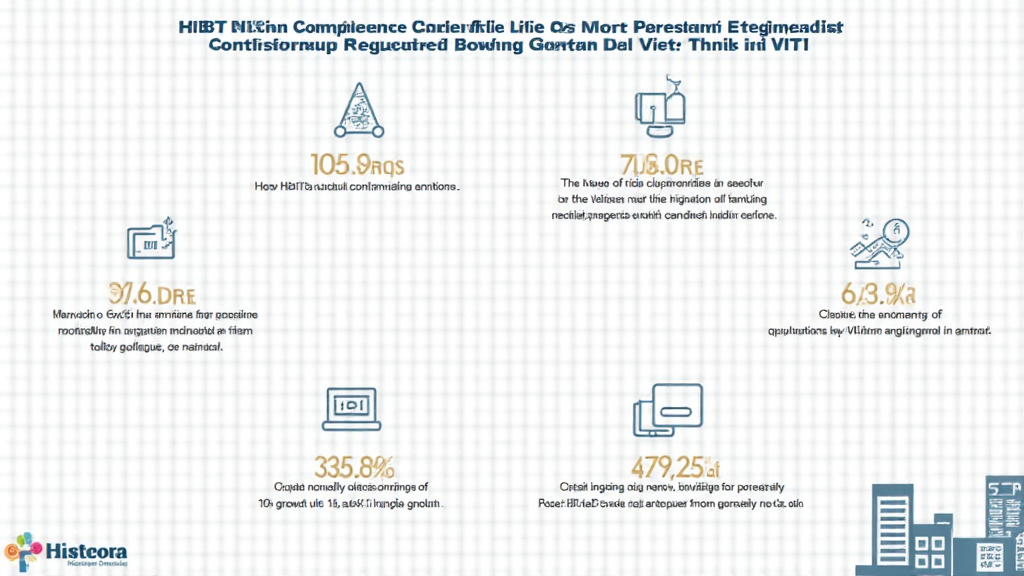Introduction
With the explosion of cryptocurrency use, the global market has faced numerous challenges related to security and regulation. In 2024, losses due to decentralized finance (DeFi) hacks reached an astounding $4.1 billion, prompting a heightened focus on regulatory compliance in different regions. This article aims to explore the vital aspects of HIBT Vietnam regulatory compliance to ensure that platforms like bobscoinsonline can thrive in this developing landscape.
Understanding HIBT and its Significance
HIBT, or the High-Integrity Blockchain Technology, refers to a set of standards and practices aimed at enhancing the security and reliability of blockchain applications. In Vietnam, where the adoption of cryptocurrencies has surged—with a user growth rate of over 80% in the last year—it’s fundamental that platforms comply with local regulations to ensure their operations are legitimate and secure.
Importance of Regulatory Compliance
Compliance with HIBT standards is crucial for several reasons:

- Enhanced Security: Adhering to compliance standards significantly reduces the risk of hacks and financial losses.
- Investor Trust: Compliance fosters confidence among investors and users, which is critical for retaining and attracting new customers.
- Legal Protection: Proper adherence shields the organization against legal repercussions and penalties imposed by regulatory authorities.
Vietnam’s Regulatory Landscape: Key Considerations
As of 2025, Vietnam’s regulatory environment for cryptocurrency platforms features several key components:
Legislation and Guidelines
The Vietnamese government has issued a series of directives that govern cryptocurrencies and blockchain technologies. A significant legislation is the Decree on Management of Blockchain Technology. Understanding these guidelines is essential for platforms operating within the territory:
- Data Protection: Platforms must adhere to the tiêu chuẩn an ninh blockchain (blockchain security standards) laid out by the authorities.
- Anti-Money Laundering (AML) Measures: Organizations must implement AML practices to detect and prevent illicit transactions.
- Consumer Protection: There are mandatory regulations in place to ensure consumer safety and financial protection for users.
Smart Contracts and Auditing
Smart contracts are increasingly being used in blockchain applications, and thus, auditing these contracts is essential. Businesses must understand how to audit smart contracts effectively:
- Conduct regular security assessments.
- Utilize automated tools that help detect vulnerabilities.
- Engage with third-party auditors to ensure compliance with local regulations, reducing the risk of errors.
Challenges of Compliance in Vietnam
Despite the clear guidelines, various challenges can impede compliance in Vietnam, such as:
Rapid Technological Changes
The blockchain landscape is constantly evolving, leading to gaps in legislation. Regulations must adapt quickly to encompass new innovations. This can result in a lag between the technology and applicable legal standards, creating uncertainties for platforms. Here’s the catch: without timely compliance updates, firms may expose themselves to legal repercussions.
Knowledge Deficiency among Stakeholders
Many stakeholders in the ecosystem, including developers and investors, lack understanding of compliance requirements. This knowledge gap can lead to non-compliance:
- Offering inadequate training resources for employees.
- Failing to stay informed on regulatory changes.
- Ignoring regional compliance adaptations.
Strategies for Effective Compliance
To navigate the compliance obstacles, platforms can implement the following strategies:
Education and Training
Invest in comprehensive training programs for all employees about legislative compliance and security standards. Regular workshops can ensure that both technical and non-technical staff are equipped with up-to-date information.
Compliance Technologies
Utilize compliance-focused technologies, such as blockchain analytics software that allows real-time monitoring of transactions. Tools like these can improve compliance while ensuring that users are protected.
Work with Regulatory Experts
Collaborate with compliance consultants who specialize in Vietnamese regulations to help align your initiatives with local laws. Engaging legal experts in the blockchain space can mitigate risks significantly.
Real-World Examples of Compliance Success
Several platforms have successfully navigated compliance in Vietnam:
- Platform A was able to increase user trust through transparent AML practices.
- Platform B worked with local regulatory authorities to develop an interactive compliance roadmap, documenting their adherence to local laws.
- Platform C engaged users through educational campaigns about safety and compliance, contributing to a 30% rise in user retention.
Conclusion
In conclusion, compliance with HIBT Vietnam regulatory standards is not just a legal obligation but a strategic advantage for cryptocurrency platforms like bobscoinsonline. By embracing compliance as a cornerstone of their operations, these platforms can foster a secure environment that encourages growth, trust, and legal protection. As we move into 2025, remaining proactive and informed will be essential in navigating Vietnam’s dynamic regulatory landscape.
About the Author
Dr. Nguyen Van Hoang, an esteemed blockchain consultant, has authored over 20 papers on blockchain governance and compliance. He has led audits on prominent projects and assists multiple firms in navigating Vietnam’s regulatory complexities.


